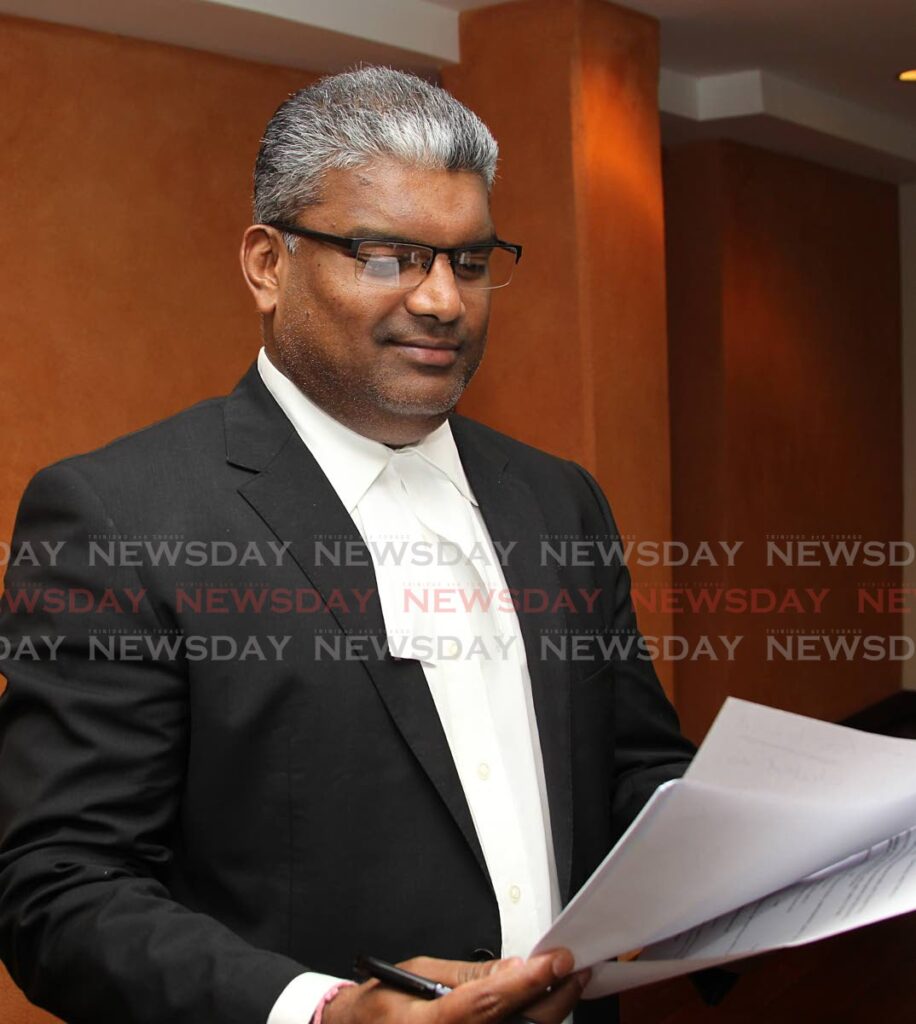Privy Council hears challenge to covid19 public health regulations

FIVE Privy Council judges will on Wednesday resume hearing submissions in two legal challenges against the Government’s public health regulations for covid19.
On Monday, Lords Reed, Briggs, Sales, Hamblen and Lady Rose began hearing submissions in the matter involving five men who were arrested at Alicia’s Guest House on April 9, 2020, and charged under the regulations that limited gatherings to groups of no more than five people.
In April 2021, the Court of Appeal, comprising Chief Justice Ivor Archie and Justices of Appeal Mira Dean-Armorer and James Aboud dismissed the appeal, ruling that the regulations passed under the colonial-age Public Health Ordinance (PHO) were not unconstitutional.
Dean-Armorer, who wrote the judgement, said the regulations were sufficiently clear as the court upheld the ruling of then High Court judge, Justice Ronnie Boodoosingh before he was elevated to the appellate court.
The judges also upheld a counter appeal brought by the Office of the Attorney General on another challenge involving the public health regulations over criminal sanctions for breach of the regulations and guidelines related to places of worship.
The challenge as it related to places of worship was initially brought by Pundit Satyanand Maharaj. The five Privy Council judges will also hear arguments from his attorney, Anand Ramlogan, SC, on Wednesday.
Both matters were heard together in the local court. Ramlogan also made submissions on Monday in the case of Dominic Suraj and the four others.
In their ruling, the Court of Appeal held the decades-old public health ordinance was protected by the Constitution and the regulations made under it were also protected from challenge by the savings clause which insulates colonial legislation from review except by Parliament.
The first case was brought by Dominic Suraj, Marlon Hinds, Christopher Wilson, Bruce Bowen, and Collin Ramjohn.
All except Ramjohn claimed to have been doing charity work by cooking a meal for a group of Venezuelan friends, who were in need.
Ramjohn, a fisherman, claimed he went to collect money for a car he rented to a friend, who works at the establishment.
The charges against all five men were dismissed after repeated delays in prosecuting them. They filed the constitutional claim contending the regulations were unconstitutional and their arrest and the charges against them were unlawful. They are seeking damages.
Ramlogan’s argument was that the regulations were inconsistent with the fundamental human rights protected by the Constitution, including the right to respect for private and family life and freedom of movement.
Ramlogan made his submissions via video-link from Trinidad and is also appearing with Peter Knox, QC, Vishal Siewsaran, Adam Riley and Ganesh Saroop.
Appearing for the State are Thomas Rowe QC, Fyard Hosein, SC, Adaam Hosein and Natasha Jackson and John Almedia, all of whom were at the Supreme Court in the United Kingdom.
In his submissions, Rowe said it was agreed that the ordinance gave the minister to the power make the regulations and this right was saved by the Republican Constitution.
He said in the present case, everyone agreed that the minister had the power to make the regulations as there was no challenge to it being ultra vires.
“Does the bringing in force of the Constitution change the situation? Were rights frozen?”
He said the appellants’ challenge could not be sustained unless the reason the minister could not make the regulations was he did not have the power to do so.
“But he had the power when you look at the 1940 ordinance and once that has been accepted, it must be Constitutional. Has he lost that power and how did he lose the power he had up until the new Constitution? Section 6 (of the Constitution) protects existing law and this precludes section 4 from nullifying existing law,” Rowe countered.
Hearing of the two appeals continues on Wednesday.


Comments
"Privy Council hears challenge to covid19 public health regulations"